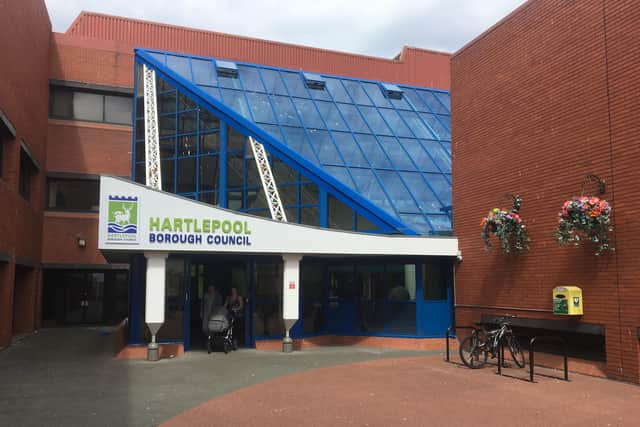Hartlepool council officers face abuse and threats over failed welfare requests
and live on Freeview channel 276
Hartlepool Borough Council has operated a Local Welfare Assistance Scheme since 2013 to help vulnerable residents in need.
Council figures state in 2021-22 there were a total of 2,651 requests for support, with 1,533 approved.
Advertisement
Hide AdAdvertisement
Hide AdHowever the council report also raised concerns of the rising demands the team face and “increasing threatening behaviours displayed” towards staff when residents are told they cannot be provided support.


The Local Welfare Support service offers “crisis” support for residents hit by sudden unforeseen events and “non crisis” aid for those setting up homes such as those fleeing domestic abuse.
A total of 1,177 cases of the approved support was for those in “crisis” while there were 356 instances of “non-crisis” aid where household goods were provided.
Across the year 641 Trussell Trust Foodbank vouchers were also issued by the team, who have connections with the voluntary and wider service sector.
Advertisement
Hide AdAdvertisement
Hide AdA report from the council director for children’s and joint commissioning services Sally Robinson warns “realistically the scheme cannot prop up the benefit system”.
It adds: “Hartlepool’s levels of deprivation are by far the most challenging issue.
“Those that present for support are in the main not ‘in crisis’, they are suffering ongoing financial hardship being unable to manage on the money that the benefit system pays them.”
The report also praises the “increased community capacity and resources” which help support residents in need.
Advertisement
Hide AdAdvertisement
Hide AdFigures state 21% of those accessing support are repeat customers, equating to 531 residents, who received support such as energy top-ups, foodbank vouchers and household goods.
The report also raises concerns over a “dependency culture” leading to those applying for support expecting it to be granted and becoming “abusive towards the team when assistance is declined”.
It said: “Concerns have been expressed about the escalating behaviours of clients, their attitudes towards staff and the increasing threatening behaviours displayed when clients are told they cannot be helped by the scheme.”
The meeting on Monday, June 20, will consider a number of options on how to carry out the Local Welfare Support scheme in 2022/23.
These include continuing with the service as it is, ending it, commissioning the service out or running a hybrid model with bolstered community intervention.